5000L Maize/Sorghum Beer Brewing Equipment
- Sep 11, 2025
- 138
- tiantai
I. Brief Introduction of Maize/Sorghum Beer Brewing Equipment
Maize/Sorghum Beer is a traditional, unfiltered African beer. Brewed from locally sourced sorghum or maize, this opaque beer is known for its rich, full-bodied flavor and slightly sour taste, reflecting generations of cultural brewing heritage.
For breweries or entrepreneurs looking to produce authentic Maize/Sorghum Beer, we offer complete beer brewing equipment — from mash tuns and fermentation tanks to brite tanks and cleaning systems. Our brewing equipment is designed to deliver consistent quality, maximize efficiency, and preserve the unique character of traditional African beer.
Start your Maize/Sorghum Beer production with a turnkey solution that combines modern brewing technology with traditional craftsmanship.
.jpg)
II.Brewing Process of Maize/Sorghum Beer
1.) Raw Material Preparation
Sorghum or maize is cleaned and milled into grist or meal.
Some brewers may mix malted grains to aid enzymatic conversion.
2.) Mashing
The milled grains are mixed with water in a mash tun.
The mixture is heated gradually to convert starches into fermentable sugars.
Typical mashing temperature: 60–70°C.
3.) Lautering / Wort Separation
The mash is separated to extract the sweet liquid called wort.
Solid residues (spent grains) are removed, often used as animal feed.
4.) Boiling (Optional)
In some Maize/Sorghum beer brewing methods, the wort is lightly boiled to sterilize and concentrate sugars.
Unlike conventional beer, Maize/Sorghum beer may skip long boiling to retain certain flavors.
5.) Cooling
The wort is cooled to fermentation temperature (around 25–30°C).
6.) Fermentation
The cooled wort is transferred to fermentation tanks.
Local yeast cultures or commercially available strains are added.
Primary fermentation lasts 2–5 days, producing alcohol and carbon dioxide.
7.) Maturation (Optional)
Beer may be transferred to brite tanks for a short maturation, allowing flavors to stabilize.
Maize/Sorghum beer is traditionally consumed fresh, so maturation time is short.
8.) Filtration / Clarification (Optional)
Maize/Sorghum beer is typically unfiltered, giving it a cloudy appearance.
Some modern production may include coarse filtration to remove large solids.
9.) Packaging
The beer is filled into plastic kegs or bottles.
Carbonation is adjusted (if necessary) to reach the desired pressure.
Ready for distribution and consumption.
III. Configuration for 5000L Maize/Sorghum Beer Brewing Equipment
Our turnkey Maize/Sorghum beer brewing equipment includes all the essential equipment required for the complete production process:
1.) Grain Handling & Preparation
Grain Cleaner – Removes impurities from sorghum or maize.
Grain Mill / Crusher – Crushes grains into grist or meal for mashing.
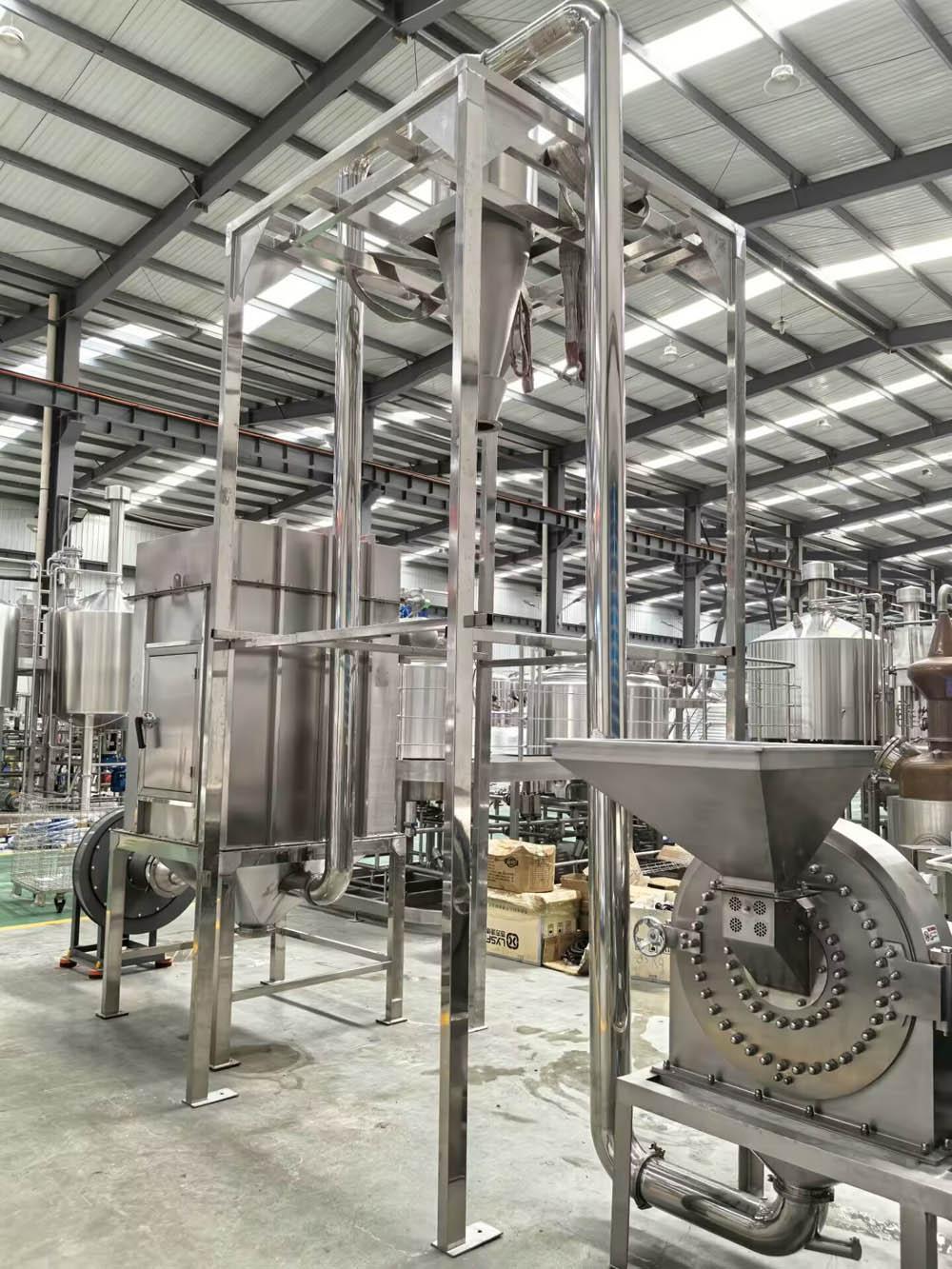
2.) Mashing & Wort Production
5000L Mash Tun – Mixes milled grains with water and heats to convert starches to sugars.
5000L Lauter Tun / Wort Separator – Separates liquid wort from spent grains.
5000L Boiling Kettle (Optional) – Lightly boils wort for sterilization and concentration.
.jpg)
3.) Cooling
50m2 Wort Cooler / Heat Exchanger – Brings wort to fermentation temperature (25–30°C).
4.) Fermentation
10-20 sets 5000L/10000L/15000L/20000L Fermentation Tanks – Stainless steel or food-grade tanks for primary fermentation.
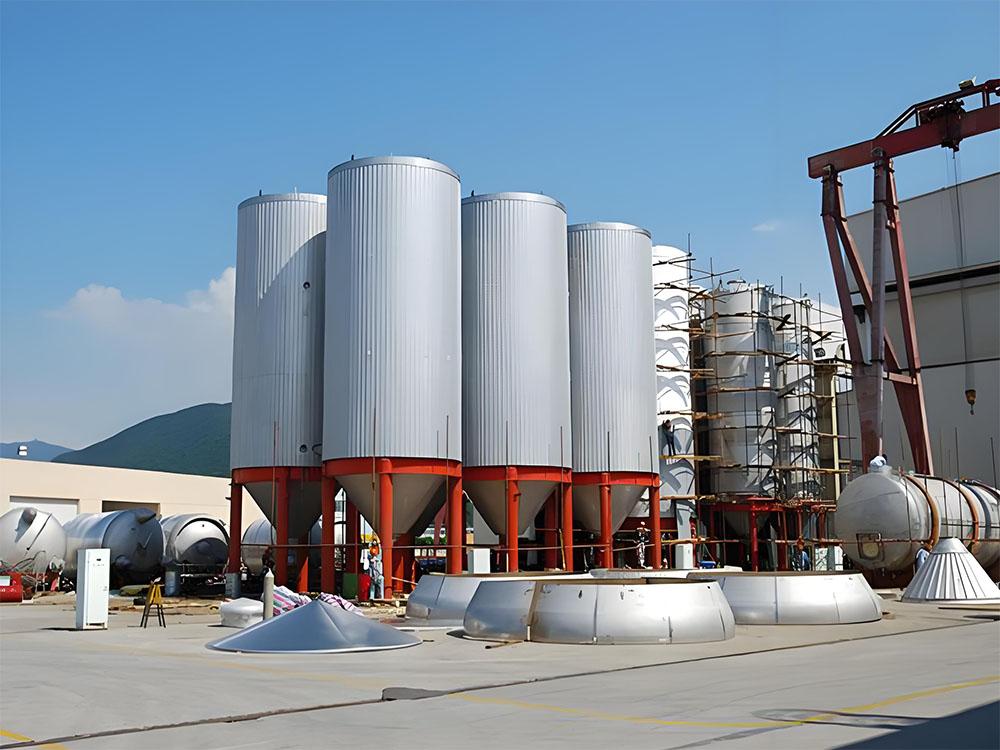
5.) Yeast Pitching System – Adds yeast to initiate fermentation.
6.) Maturation / Brite Tanks (Optional)
2-5 sets 10000L Brite Tank – Short-term storage and clarification before packaging.
7.) Filtration / Clarification (Optional)
Coarse Filter / Screen – Removes large solids if needed (traditional Chibuku is usually unfiltered).
8.) Packaging & Carbonation
Keg Filling Machine – Fills plastic kegs for distribution.
Bottle Filling Line – Optional for bottled Chibuku.
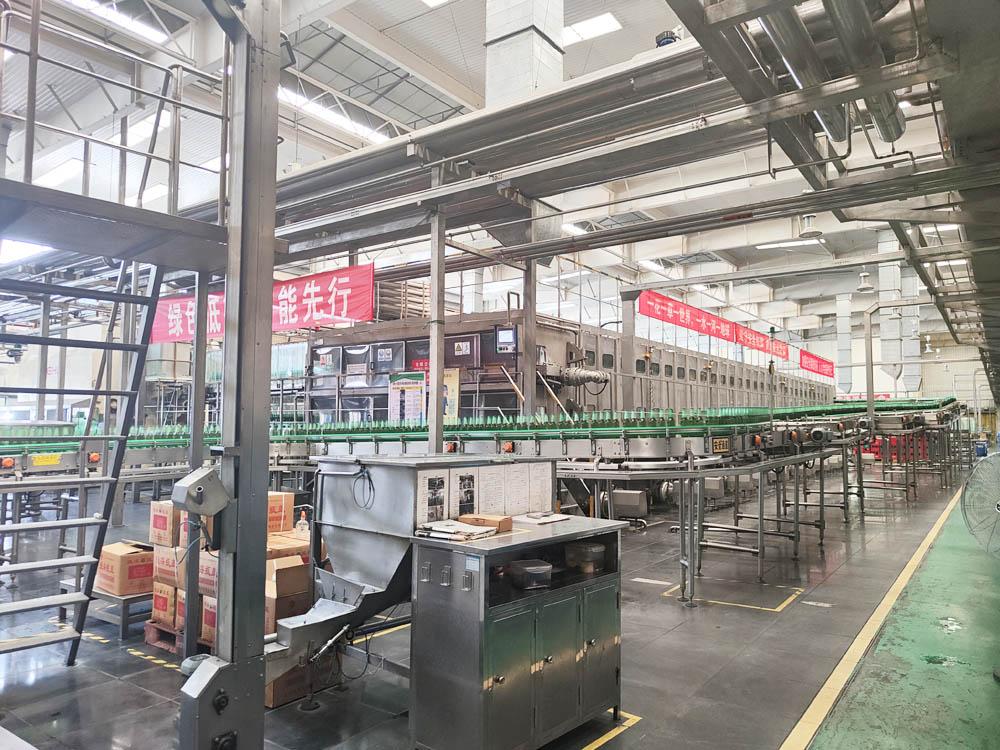
9.) CO₂ / Pressurization System – Adjusts carbonation if required.
10.) Cleaning & Sanitation
CIP (Clean-in-Place) System – Cleans tanks, pipelines, and filling lines efficiently.
IV. Maize/Sorghum Beer Features & Advantages
* Traditional and Authentic – Brewed from local grains such as sorghum or maize, following generations-old African brewing methods.
* Opaque Appearance & Full-Bodied Flavor – Naturally cloudy, slightly sour, malty taste, reflecting the unique character of traditional African beer.
* Low to Moderate Alcohol Content – Typically 2–4% ABV, easy to drink and socially inclusive.
* Fresh and Natural – Usually consumed fresh, preserving the original flavor profile.
* Culturally Significant & High Market Demand – Popular in Zambia, Zimbabwe, and neighboring regions for social gatherings, ceremonies, and local consumption.
* Simple Raw Materials & Flexible Production – Uses readily available sorghum or maize; production can scale from small community setups to industrial breweries.
* Distinctive Product Identity & Potential for Modernization – Opaque, low-alcohol, traditional taste differentiates it from commercial lagers; can combine with modern equipment for consistent quality, efficiency, and hygienic production.
* Sustainable & Eco-Friendly – Spent grains can be used as animal feed.
V. Market & Application Scenarios
* Local Bars & Taverns – Served fresh to local communities, providing a popular and culturally authentic beverage option.
* Traditional Ceremonies & Festivals – Used in weddings, harvest celebrations, and other cultural or tribal events.
* Community Gatherings & Social Events – Ideal for informal parties, family gatherings, and neighborhood events.
* Small & Medium-Sized Breweries – Suitable for commercial production for local markets.
* Export & Specialty Markets – Can be packaged for ethnic stores or international markets interested in African traditional beverages.
* Tourism & Hospitality – Offered in lodges, resorts, and restaurants to give visitors a taste of local culture.
If you are interested in starting your Maize/Sorghum Beer production or upgrading your existing brewery, contact us today for a personalized consultation and quotation. Let us help you bring authentic African brewing to life with modern, reliable Maize/Sorghum beer brewing equipment.
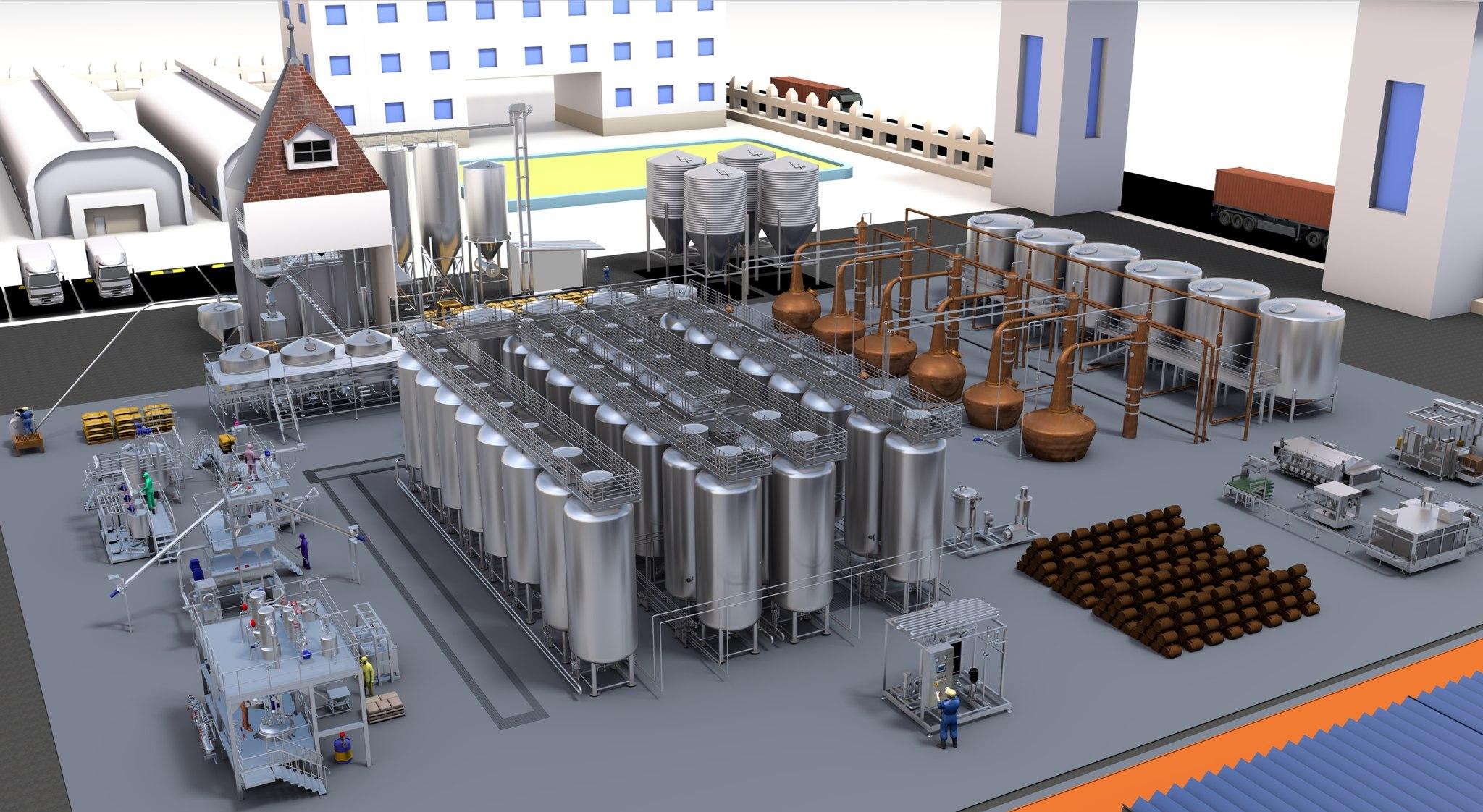
Maize/Sorghum Beer is a traditional, unfiltered African beer. Brewed from locally sourced sorghum or maize, this opaque beer is known for its rich, full-bodied flavor and slightly sour taste, reflecting generations of cultural brewing heritage.
For breweries or entrepreneurs looking to produce authentic Maize/Sorghum Beer, we offer complete beer brewing equipment — from mash tuns and fermentation tanks to brite tanks and cleaning systems. Our brewing equipment is designed to deliver consistent quality, maximize efficiency, and preserve the unique character of traditional African beer.
Start your Maize/Sorghum Beer production with a turnkey solution that combines modern brewing technology with traditional craftsmanship.
.jpg)
II.Brewing Process of Maize/Sorghum Beer
1.) Raw Material Preparation
Sorghum or maize is cleaned and milled into grist or meal.
Some brewers may mix malted grains to aid enzymatic conversion.
2.) Mashing
The milled grains are mixed with water in a mash tun.
The mixture is heated gradually to convert starches into fermentable sugars.
Typical mashing temperature: 60–70°C.
3.) Lautering / Wort Separation
The mash is separated to extract the sweet liquid called wort.
Solid residues (spent grains) are removed, often used as animal feed.
4.) Boiling (Optional)
In some Maize/Sorghum beer brewing methods, the wort is lightly boiled to sterilize and concentrate sugars.
Unlike conventional beer, Maize/Sorghum beer may skip long boiling to retain certain flavors.
5.) Cooling
The wort is cooled to fermentation temperature (around 25–30°C).
6.) Fermentation
The cooled wort is transferred to fermentation tanks.
Local yeast cultures or commercially available strains are added.
Primary fermentation lasts 2–5 days, producing alcohol and carbon dioxide.
7.) Maturation (Optional)
Beer may be transferred to brite tanks for a short maturation, allowing flavors to stabilize.
Maize/Sorghum beer is traditionally consumed fresh, so maturation time is short.
8.) Filtration / Clarification (Optional)
Maize/Sorghum beer is typically unfiltered, giving it a cloudy appearance.
Some modern production may include coarse filtration to remove large solids.
9.) Packaging
The beer is filled into plastic kegs or bottles.
Carbonation is adjusted (if necessary) to reach the desired pressure.
Ready for distribution and consumption.
III. Configuration for 5000L Maize/Sorghum Beer Brewing Equipment
Our turnkey Maize/Sorghum beer brewing equipment includes all the essential equipment required for the complete production process:
1.) Grain Handling & Preparation
Grain Cleaner – Removes impurities from sorghum or maize.
Grain Mill / Crusher – Crushes grains into grist or meal for mashing.

2.) Mashing & Wort Production
5000L Mash Tun – Mixes milled grains with water and heats to convert starches to sugars.
5000L Lauter Tun / Wort Separator – Separates liquid wort from spent grains.
5000L Boiling Kettle (Optional) – Lightly boils wort for sterilization and concentration.
.jpg)
3.) Cooling
50m2 Wort Cooler / Heat Exchanger – Brings wort to fermentation temperature (25–30°C).
4.) Fermentation
10-20 sets 5000L/10000L/15000L/20000L Fermentation Tanks – Stainless steel or food-grade tanks for primary fermentation.

5.) Yeast Pitching System – Adds yeast to initiate fermentation.
6.) Maturation / Brite Tanks (Optional)
2-5 sets 10000L Brite Tank – Short-term storage and clarification before packaging.
7.) Filtration / Clarification (Optional)
Coarse Filter / Screen – Removes large solids if needed (traditional Chibuku is usually unfiltered).
8.) Packaging & Carbonation
Keg Filling Machine – Fills plastic kegs for distribution.
Bottle Filling Line – Optional for bottled Chibuku.

9.) CO₂ / Pressurization System – Adjusts carbonation if required.
10.) Cleaning & Sanitation
CIP (Clean-in-Place) System – Cleans tanks, pipelines, and filling lines efficiently.
IV. Maize/Sorghum Beer Features & Advantages
* Traditional and Authentic – Brewed from local grains such as sorghum or maize, following generations-old African brewing methods.
* Opaque Appearance & Full-Bodied Flavor – Naturally cloudy, slightly sour, malty taste, reflecting the unique character of traditional African beer.
* Low to Moderate Alcohol Content – Typically 2–4% ABV, easy to drink and socially inclusive.
* Fresh and Natural – Usually consumed fresh, preserving the original flavor profile.
* Culturally Significant & High Market Demand – Popular in Zambia, Zimbabwe, and neighboring regions for social gatherings, ceremonies, and local consumption.
* Simple Raw Materials & Flexible Production – Uses readily available sorghum or maize; production can scale from small community setups to industrial breweries.
* Distinctive Product Identity & Potential for Modernization – Opaque, low-alcohol, traditional taste differentiates it from commercial lagers; can combine with modern equipment for consistent quality, efficiency, and hygienic production.
* Sustainable & Eco-Friendly – Spent grains can be used as animal feed.
V. Market & Application Scenarios
* Local Bars & Taverns – Served fresh to local communities, providing a popular and culturally authentic beverage option.
* Traditional Ceremonies & Festivals – Used in weddings, harvest celebrations, and other cultural or tribal events.
* Community Gatherings & Social Events – Ideal for informal parties, family gatherings, and neighborhood events.
* Small & Medium-Sized Breweries – Suitable for commercial production for local markets.
* Export & Specialty Markets – Can be packaged for ethnic stores or international markets interested in African traditional beverages.
* Tourism & Hospitality – Offered in lodges, resorts, and restaurants to give visitors a taste of local culture.
If you are interested in starting your Maize/Sorghum Beer production or upgrading your existing brewery, contact us today for a personalized consultation and quotation. Let us help you bring authentic African brewing to life with modern, reliable Maize/Sorghum beer brewing equipment.


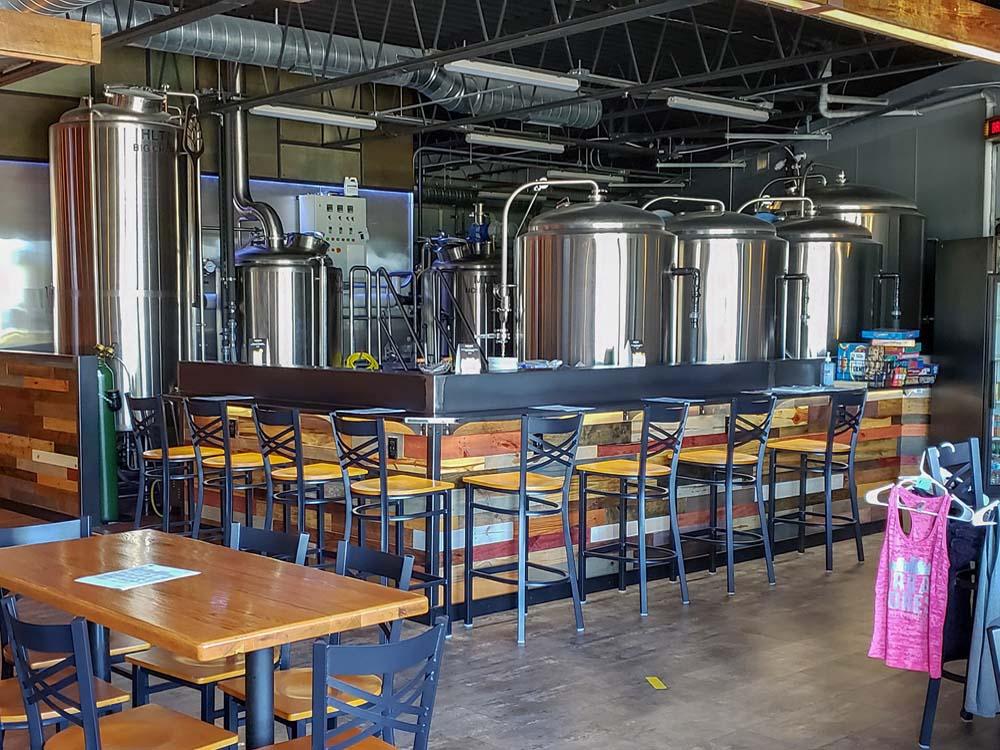
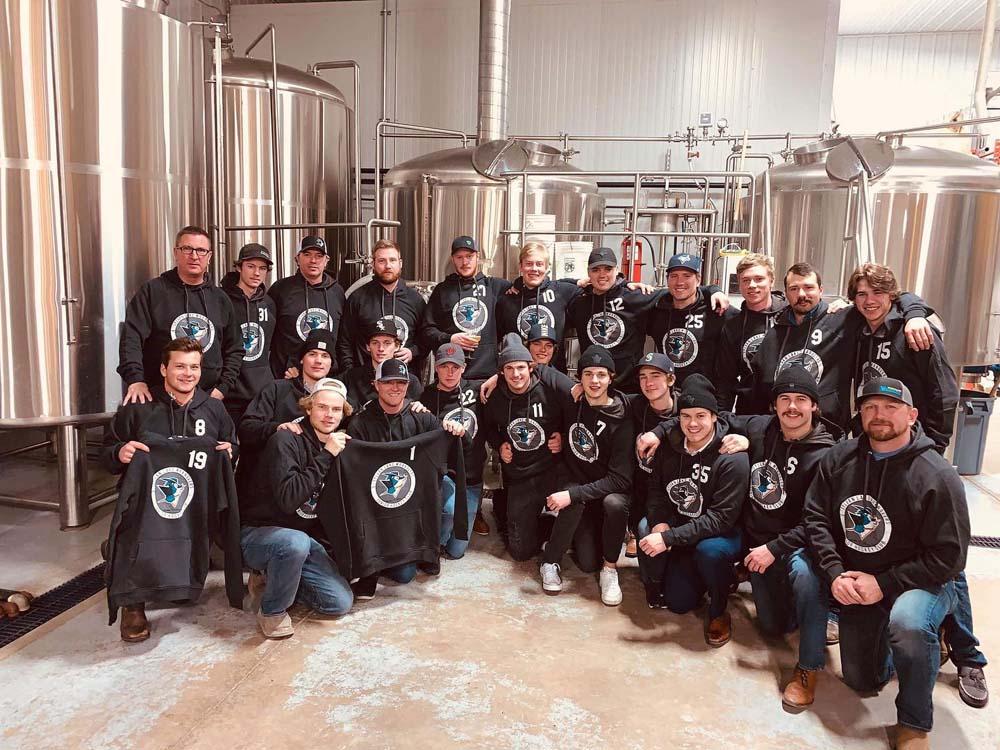
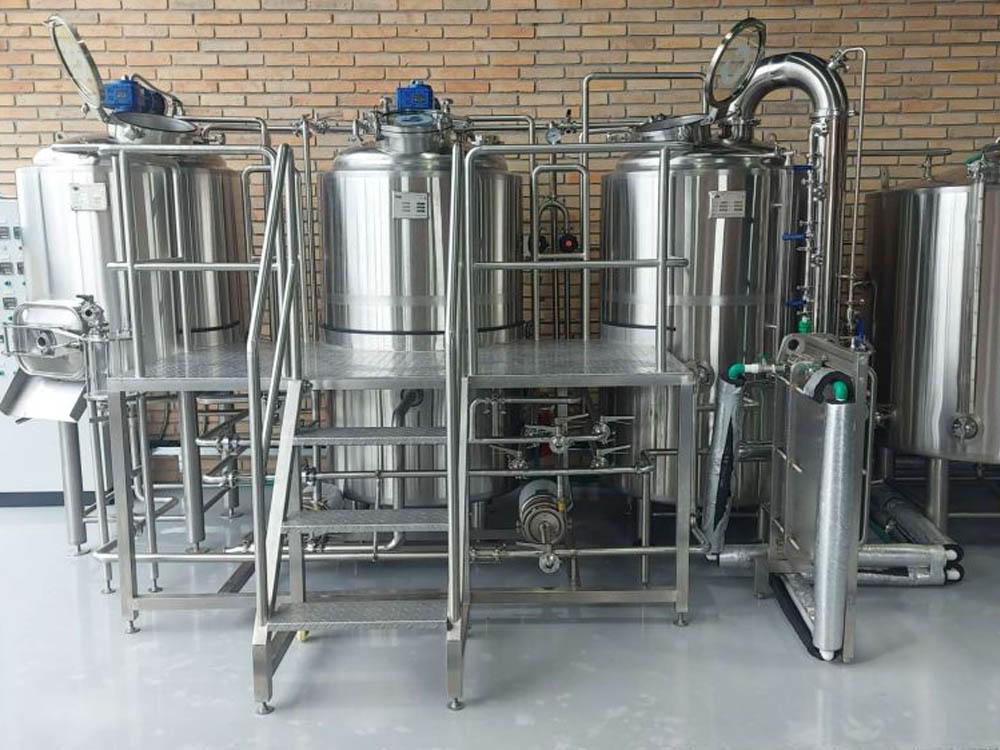
.jpg)